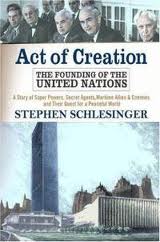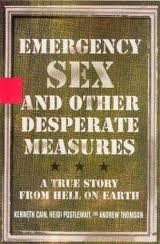As the holiday period descends and international relations students and scholars take a break from their research, one logical question is, how do I keep my brain from stagnating over the break? For those heading into summer, The Prince may not be ideal beachside reading, while those heading into winter probably do not want to curl up beside the fireplace with a copy of Henry Kissinger’s Diplomacy.
Luckily, there are a number of books that manage to provide the intellectual stimulation of lectures and classes. Here are some recommendations for the holiday period that will stimulate the mind without making you feel like you are preparing for an exam.
 Undiplomatic Activities
Undiplomatic Activities
By: Richard Woolcott
Melbourne: Scribe Publications, 2008.
The diplomatic services of many nations and their respective diplomats are at times considered overly attached to protocol and formalities. Yet there is evidently a lighter side to diplomacy not always illuminated in diplomats’ published accounts of their service. This could occur because readers seeking humorous material may be more likely to turn to known humorists than to members of a profession whose careers depend on candour, subtlety and nuance. Richard Woolcott, a former senior Australian diplomat, has also written a memoir detailing his diplomatic service, Hot Seat: reflections on diplomacy from Stalin’s death to the Bali Bombings. Undiplomatic Activities does not serve the same purpose, rather, as Woolcott states, he wrote Undiplomatic Activities to reveal the humorous side to diplomatic life.
Woolcott details the vagaries of diplomatic life and the associated events which diplomats are required to attend. Woolcott’s account details the requirements for multiple forms of dress, the requirements for diplomatic vehicles, the nuances in diplomatic translations and events where chairs collapsed under the weight of their patrons and guests remaining at the table despite physical illness (p.59), so as not to offend. Woolcott also provides a useful shorthand table of diplomatic terms and their genuine meaning (pp. 134-5) which are a useful aid to United Nations (UN) speeches. These are entertaining entrees into the diplomatic world.
Woolcott’s book provides limited insight into the policy decisions with which he was involved, beyond his involvement in Australia’s previous successful candidature for the United Nations Security Council. Nor does the book provide much insight into the role of the diplomatic service and its role in a liberal democracy, beyond his personal desire to avoid diplomacy being ‘spun’ by national governments. Woolcott does intersperse brief opinions on international politics and government, including his belief that the UN represents the greatest organ for fostering a more peaceful world (p. 33) and that diplomacy remains important given the numerous world issues such as famine, genocide and unrest, but the tone remains overwhelmingly light. If potential readers were interested in such matters, it would be prudent to read Hot Seat. However, for those seeking an easy, semi-structured and entertaining insight into diplomacy, Undiplomatic Activities is a must.
 Act of Creation: The Founding of the United Nations
Act of Creation: The Founding of the United Nations
By: Stephen C. Schlesinger
New York: Basic Books, 2004.
As an international relations student, academic, or interested member of the public, many readers of this review will be aware of many of the UN’s intricacies, including the voting structure, the elections for the United Nations Security Council and which countries are in the exclusive club of the ‘Permanent Five’. These are the extremely important, yet procedural elements of the United Nations that provide little insight into the organisation beyond the structural power blocs at the time of its formation. But what is known about the politics at the time of formation? Was the United Nations formed by altruistic states seeking to mitigate further conflict by ceding sovereignty to a new world body to avoid repeating the failure of the League of Nations and a further global conflict?
Stephen Schlesinger weaves a masterful narrative around the formation of the United Nations. Drawing upon considerable research into the participants at the San Francisco conference that created the UN, the book paints the picture of the personalities and politics involved at the formation of the body, which still affect its operations today. Schlesinger details the individual and national power plays, the political machinations, obstructions and intrigues surrounding the San Francisco conference. The justification behind the veto, the moves to exclude the veto, and the phrasing of numerous contentious elements of the UN Charter are examined in light of delegations’ intentions.
Despite his focus upon the United States (US) delegation and the Russian delegation, Schlesinger gives insight into the numerous delegations and the issues surrounding particular issues and regions, such as the admission of Argentina and Poland, despite widespread opposition. Throughout the text, Schlesinger writes well-structured and flowing prose. While some readers may find the extensive use of quotations unnecessary, as a result the book is an enthralling read, rather than an emotionless examination. This method is ideal for this book, given the exceptional importance of domestic constituencies, the importance of President Truman’s outreach to Stalin, the delegations’ interactions with other UN members and the role of Permanent Five delegations on key issues.
Schlesinger concludes by calling for increased US involvement in the organisation in which it played such a central role in forming for the good of all nations. Schlesinger’s conclusion is one of the few elements of critical analysis within the book that also link the conference to current events surrounding the UN. However, Schlesinger does not claim to provide such analysis, rather he seeks to recount the events surrounding the formation given the relative dearth of comprehensive histories of the UN’s formation. Act of Creation is an entertaining and highly informative book that should be required reading for anyone seeking to understand the United Nations and the environment in which it was formed, or the numerous undercurrents, negotiations and concessions involved in an international agreement.
 Emergency Sex and Other Desperate Measures: A True Story from Hell on Earth
Emergency Sex and Other Desperate Measures: A True Story from Hell on Earth
By: Kenneth Cain, Heidi Postlewait and Andrew Thomson
New York: Miramax, 2004.
Many international relations students will undoubtedly be considering a career of service to the international community through participation in their national diplomatic services, in academia, or by assisting the closest thing we have to a leviathan: the UN. There have been a number of publications about working in the UN, including the entertaining but frightening, Backstabbing for Beginners: My Crash Course in International Diplomacy by Michael Soussan and Breaking the Rules: Working for the UN can be fun by Alexander Casella. While both of these books provide insights into UN agencies, it is often comparative accounts that prove the most insightful, as multiple narratives grant readers a range of views into the same event.
Emergency Sex is the story of three young people who ended up working for the United Nations in the 1990s. The book gives insight into the reality of service in UN missions, the high points and low points of serving the international community. Despite the somewhat sensationalist title, this is not a vacuous or shallow look at life within the UN system. Instead, the authors have given candid portraits of themselves, their colleagues and the system in which they worked. The authors give examples of shining examples of international citizens seeking to help humanity through UN service in adverse conditions, but also reveal the less desirable individuals such as the incompetents and those who seek to reward themselves at the expense of others and through abuse of their positions.
Like many personal and academic inquiries into the United Nations, the authors identify a number of issues within the United Nations and its associated agencies. The unique insights from the authors are the real implications of such decisions. Like Romeo Dallaire’s Shake Hands with the Devil, the authors show what happens when decisions are made in conflict zones and the results of those decisions, rather than simply quoting media reports about those decisions. This helps to put a human face to decisions such as the withdrawal from Somalia or what happens when individuals are prompted to investigate human rights violations in undemocratic nations.
Emergency Sex is a riveting, if depressing read, which sheds light on the reality of UN service and the unique conditions attached to such service. The authors have given much of themselves to the reader to display the positives and negatives of the UN. The book is recommended for anyone trying to understand the UN system and the implications of UN involvement and withdrawal in a more personal and less academic context.
 The Shallows: What the Internet is Doing to Our Brains
The Shallows: What the Internet is Doing to Our Brains
By: Nicholas Carr
New York: W.W. Norton and Company, 2011.
By reading this review, you are looking to find an efficient way to determine your holiday reading. To assist you, I have provided hyperlinks to the books reviewed. In between reading the review of each book, you may have checked your email, run searches for scholarly journals for an assignment and clicked on the hyperlinks at the top of the page. When completing a paper on an international relations concept, you are probably able to identify relevant references from obscure authors or publications that would have been inaccessible to international relations scholars two decades ago. While you are downloading the PDFs, you are also able to send text messages and emails to friends across the globe.
This is the reality of the current era, where the internet has led people to praise efficiency and the ability to collate information from expected and unexpected locations. Indeed, the reader will likely not write down the book title or the author, because the author has provided an Amazon hyperlink and a quick Google search will find the book again using keywords, which leaves your memory free to retain more important facts and thoughts. But does this thinking change the way your brain works? Would doing this regularly prompt you to lose the ability to recall facts and titles on a regular basis? In The Shallows, Nicholas Carr examines the impact of the internet upon our collective and personal intellects.
Carr presents the rise of the internet in the context of other technical evolutions and the impacts they have had upon human life. Carr discusses extensive literature from social sciences and medical sciences to examine the impact the internet is having upon our brains. Carr concludes that the internet is moulding our brains to reward less deep thinking while focusing upon an ability to efficiently synthesise masses of information, at the expense of subtlety and nuance. While humans have always had the capability to skim texts, he believes this is now becoming dominant as we distance ourselves from reflective and absorbed readings of books and text. Instead, we read briefly jumping back and forward using hyperlinks that, Carr suggests, have led us to become like lab mice seeking intellectual rewards through constant information seeking.
The book is fascinating reading and well deserving of its position as a finalist in the General Nonfiction category of the 2011 Pulitzer Prize. Carr’s book raises a number of important questions that require understanding as internet usage grows and our capacity for deep thinking gradually erodes. Upon reading Carr’s book, readers will find themselves more perceptive of the way they think and interact with the world using the internet.
—
Thomas Messer completed a Bachelor of Arts in International Relations and Political Science at The University of Queensland and a Master of Strategic Affairs at The Australian National University.